THE NEED FOR REFORMING THE SALE OF GOODS ORDINANCE OF SRI LANKA
THE NEED FOR REFORMING THE SALE OF GOODS ORDINANCE OF SRI LANKA: EMPHASIS ON DIGITAL AND VIRTUAL GOODS & ASSETS
By Lakindu Mathanga Kannangara
Abstract
The sale of goods in Sri Lanka is codified and governed by the Sale of Goods Ordinance, No.11 of 1896 which contains 59 sections was drafted by Sir Mackenzie Chalmers in 1889. The purpose of this research was to address the problematic concern whether the 126 years old SOGO of 1896 which has not gone through any legal reforms since inception, will hinder the social and economic development of Sri Lanka, if remained unamended. The research aims to emphasize several areas in the ordinance which should undergo reforms to reflect the needs and the changes with regard to digital and virtual goods and assets as well as the trends in the current globalized commercial world.
Doctrinal legal research approach was employed in conducting this research and the qualitative data is gathered through a review of primary sources; national and foreign legislation and secondary sources such as legal publications, books, law journals, conference papers and reputed and credible online sources.
The research in its conclusion offers suitable nonuple point proposal as recommendations to the sales of goods ordinance in Sri Lanka which emphasizes the importance of amendments that reflect the latest needs of the global markets. Finally, the need for extensive further research under three major domains is highlighted as the feasibility checks to determine the capacity and the suitability of the existing SOGO in the future trade of digital and virtual goods.
Download File
File Name: THE NEED FOR REFORMING THE SALE OF GOODS
Size: 404 KB
Format: PDF
Browse By
© 2012-2019 ICBT Campus | Design by ICBT IT Team | ICBT All Rights Reserved.
Design by ICBT IT Team

